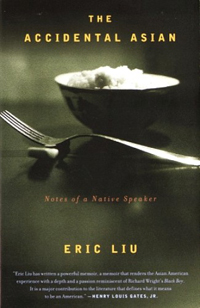You may remember our blog post from a few weeks ago on how to improve your listening comprehension skills in a new language. This week we give you more tips on how to optimise your language learning – this time with advice on how to develop your reading in another language. Whether you’re choosing what to eat at a restaurant, poring over a newspaper, or following directions on a map, reading is a big part of using your target language. Working on your reading skills can also help you develop your writing as you learn about written constructions. Here are a few ideas to help you learn.
Read a Lot
Read anything you can get your hands on in your chosen language. Try to read at least one thing in the language you are learning every day. The more you read it, the more familiar the language will become and the easier reading will be. Reading will help you develop background knowledge about the culture you are studying too, which will help your understanding as well. You can also read about the culture in your own language, so it becomes familiar to you.
Choose Materials You Find Interesting
You can choose a text type you are familiar with, through your work or hobbies, and read an example in your chosen language, such as a magazine article on motorbikes or a recipe for a typical dish from the country where they speak the language you are learning. You will know what kind of words will be used, so you will be comfortable with the task. Choose things you would like to read in your native language. Don’t read things that are boring just because you think you should – it will put you off! Pick your favourite novel and read the translation in the language you are learning. You might like to try graded readers as well, as the structures are adapted to learners of the language but they pitch the story to adults rather than children so it is not boring for adult learners. Reading for pleasure can help your learning immensely – it is not the same as using a textbook which (let’s be honest) can be a bit dry sometimes.
Develop Your Vocabulary – Gradually
The good thing about reading is that you can control how fast you learn. You can give yourself time to think.
When you first approach a text, read for the gist – identify words you know and work out the general subject. Look up a few words if you are really stuck on them but don’t dwell on how many words you don’t know and don’t look up all the unfamiliar words you read – it will slow you down. Instead, underline them to look up later. Remember, you will be able to understand a lot of the text even if you don’t understand every word. You can look up the words you underlined when you finish reading. You can always read the text again once you’ve done that. As you look up words, build lists of vocabulary by theme. For example, list everything you find about cooking, sports, the weather or politics. If you find a verb, look up nouns that go with it, and adjectives. For example: ‘compter’ in French means ‘to count’, ‘comptable’ is ‘accountant’ and ‘comptabilité’ means ‘accounting’. In Italian, ‘rabbia’ is ‘anger’, ‘arrabbiarsi’ is ‘to get angry’ and ‘arrabiato’ is ‘angry’. Most languages will allow you to do this exercise! You can also find lists of vocabulary to learn on the internet, such as the 1000 words challenge (http://www.speaktothefuture.org/1000-words-challenge/). Look up synonyms and antonyms of the words you learn to build your vocabulary even more. If you are a visual learner, draw pictures associated with the words you are learning to help you remember them. Repeat the words as much as you can so they stick in your head.
Of course, one thing to remember is that you don’t read just in order to learn words. If you read a book you are interested in, you will learn words in context and be more likely to remember them anyway.
Give Yourself Different Reading Tasks
Try different reading tasks to build your ease of reading. You can time how long it takes you to read a text a few times – you will see how you get faster as your fluency increases. You can decide to read fast or slow. You can read a text aloud (this will also help with your pronunciation), in a reading group or in a pair (meet up with someone from your class!) Come back to texts you have already read to see how much more you understand the second time round! Listen to the text you are reading – an audiobook or a radio show with a transcript, for example – to hear how native speakers pronounce the words and what the reading aloud style is like in your chosen language.
Bonne lecture! Veel leesplezier! Miłego czytania!
Written by Suzannah Young



